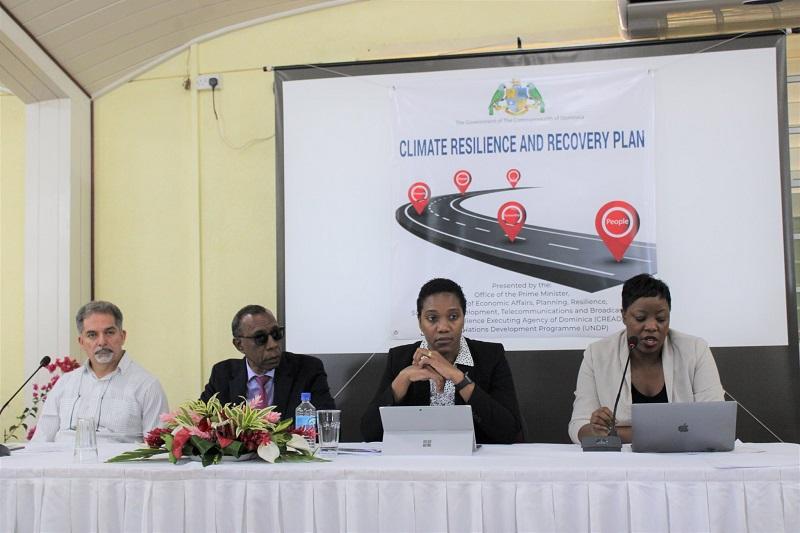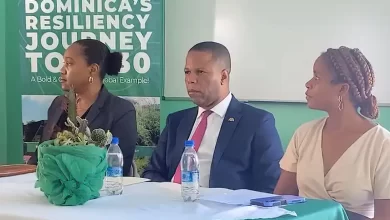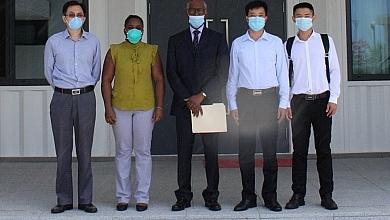
In the next two years, the Dominica State College will graduate 312 skilled technology majors in the field of Agriculture, Building and Civil Engineering, Architectural Technology, Plumbing Technology, Electrical Engineering, Refrigeration and Air- conditioning, Mechanical Engineering, and Electronic Engineering.
Dr. Donald Peters, President of the Dominica State College,
Dr. Donald Peters was at a panel discussion at the National Consultation on the Climate Resilience and Recovery Plan organized by Government of the Commonwealth of Dominica on Friday, January 24, 2020. This is in keeping with the college’s promise in working towards the goal of making Dominica the first Climate Resilient Country in the world.
Dr. Peters is convinced that the students are listening and making the right decisions to ensure that we become a resilient people. He compared the number of students before 2017 and this present day who are being trained in the technical skilled area at the college. In his words, “Before 2017 the average number of students doing technical programs was 160 per graduating class to 312 in 2020. This s amazing.”
The Dominica State College is also working on two other projects, the Rotary Distance Learning Project and SAGE- Skills to Access the Green Economy, which are geared towards increasing the number of women and indigenous persons with technical skills. These projects will further assist Dominica businesses to become more competitive and adaptive to climate change.
Concerning the Rotary Distance Learning Project, the college is teaming up with Rotary Canada which will provide funding of materials to deliver technical education to remote sites to students
who are unable to come to town. The second project, which focuses on technical education, is funded by the Canadian government. Through their funding, the college has partnered with Algonquin College and Dalhousie University to undertake a project called SAGE- Skills to Access the Green Economy. SAGE is a five year (2019-2024) funded project by the government of Canada (CI CAN). The training program covered by the project will be in the areas of Water and Coastal Management, Eco-Tourism, Agriculture, and Construction. The activities will include on the job training, the development of Vocational Qualification Certification Programs and the introduction of a gender-equitable workforce. The training program is meant to deliver skills that meet economic and environmental needs of the region. Countries selected to benefit from the SAGE program are Belize, Grenada, Guyana, St. Lucia and Dominica. The Dominica program will be taught and managed by the faculty of Applied Arts and Technology of the Dominica State College in partnership with CALLS Portsmouth.
“There is hope for building a resilient Dominica,” Dr. Donald Peters, President of the Dominica State College participating in the national consultation.
This article is copyright © 2020 DOM767








